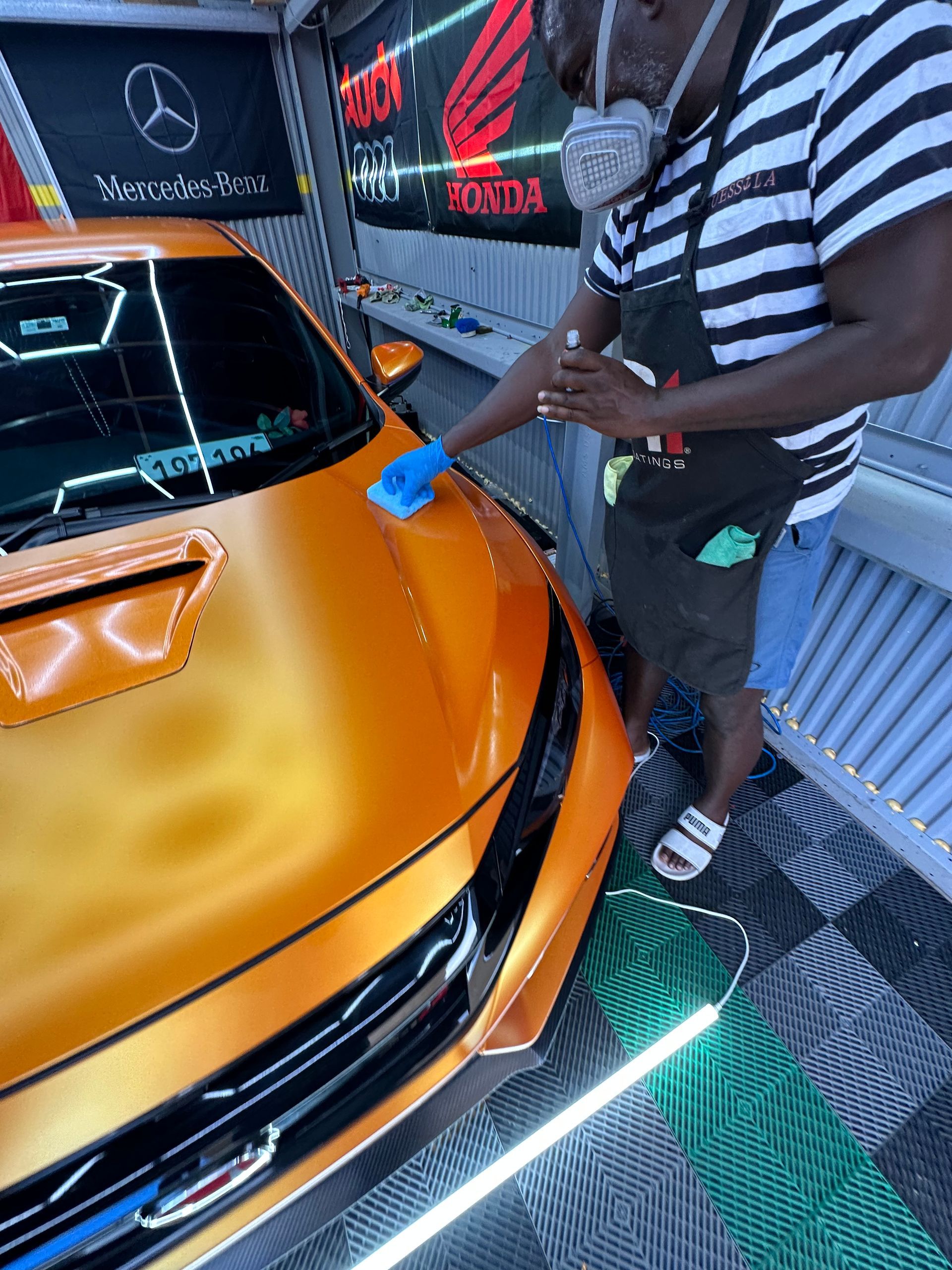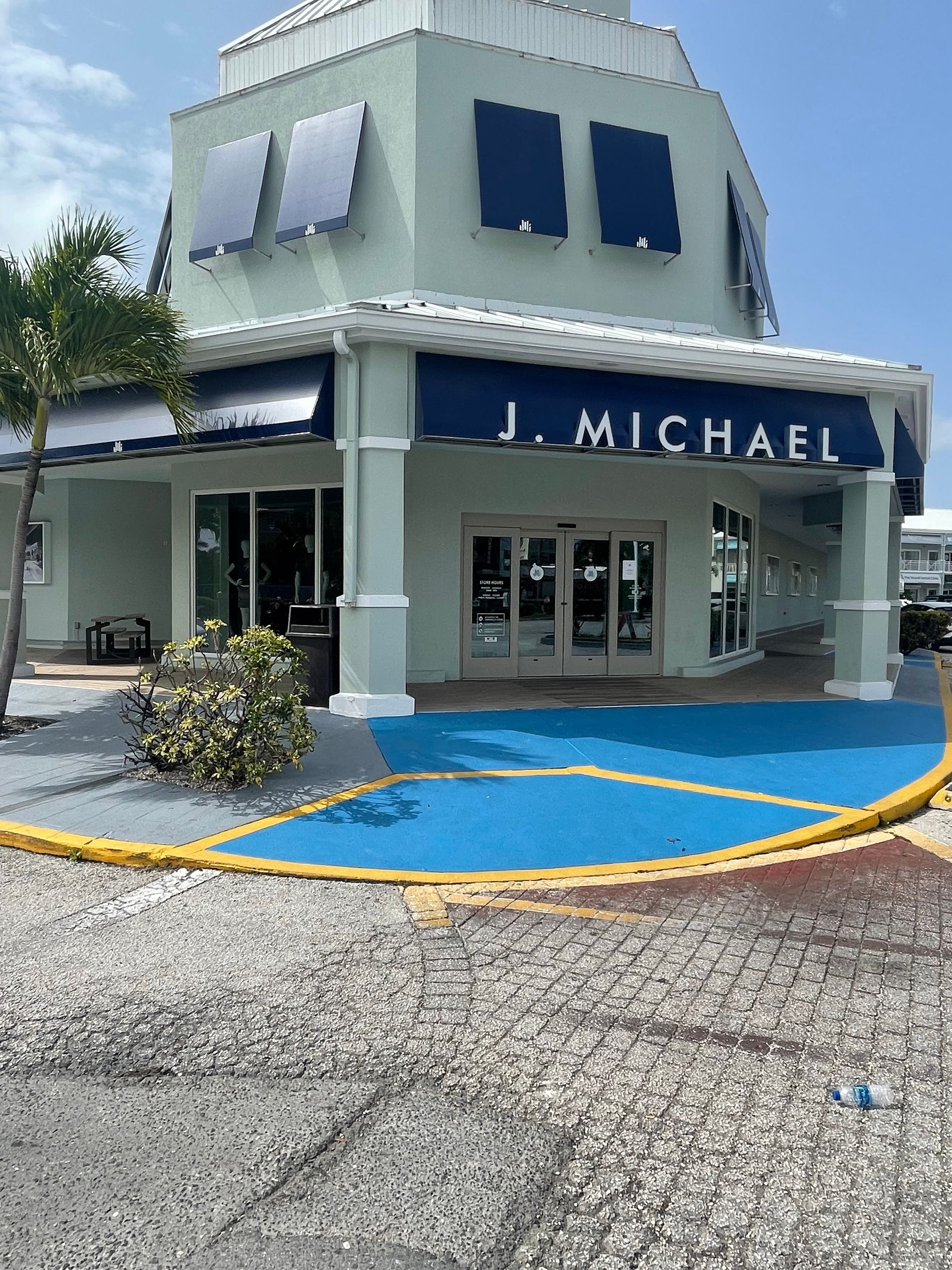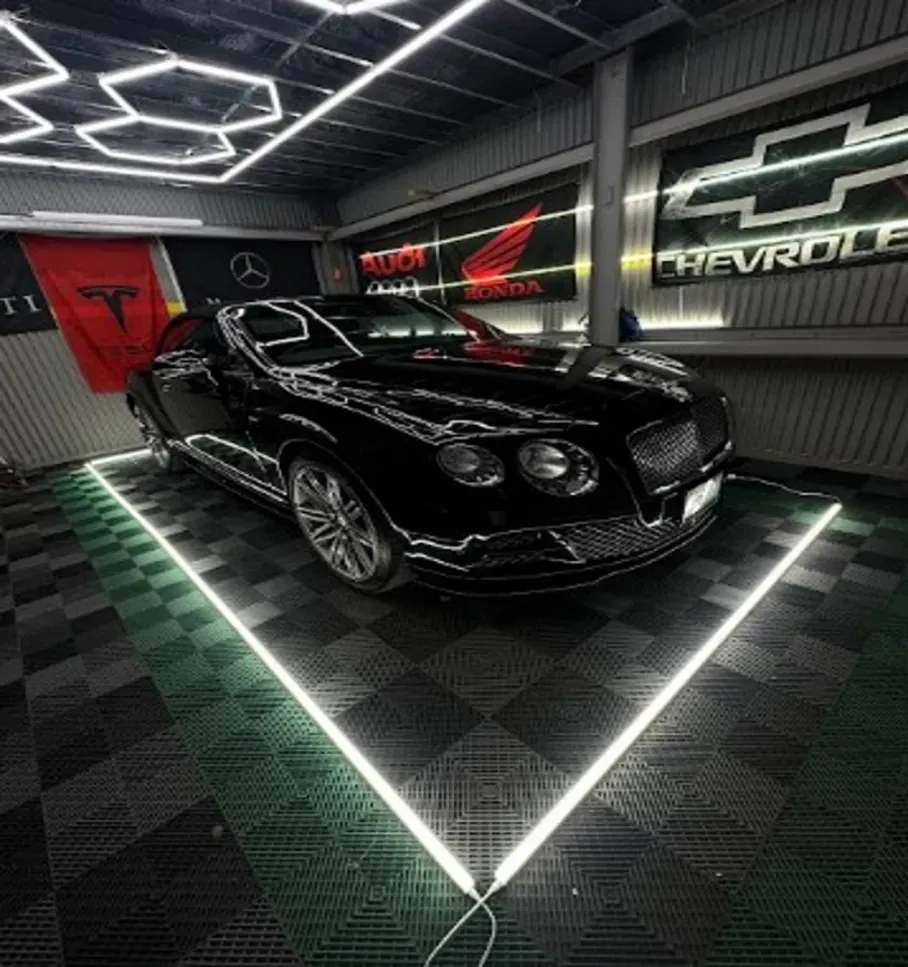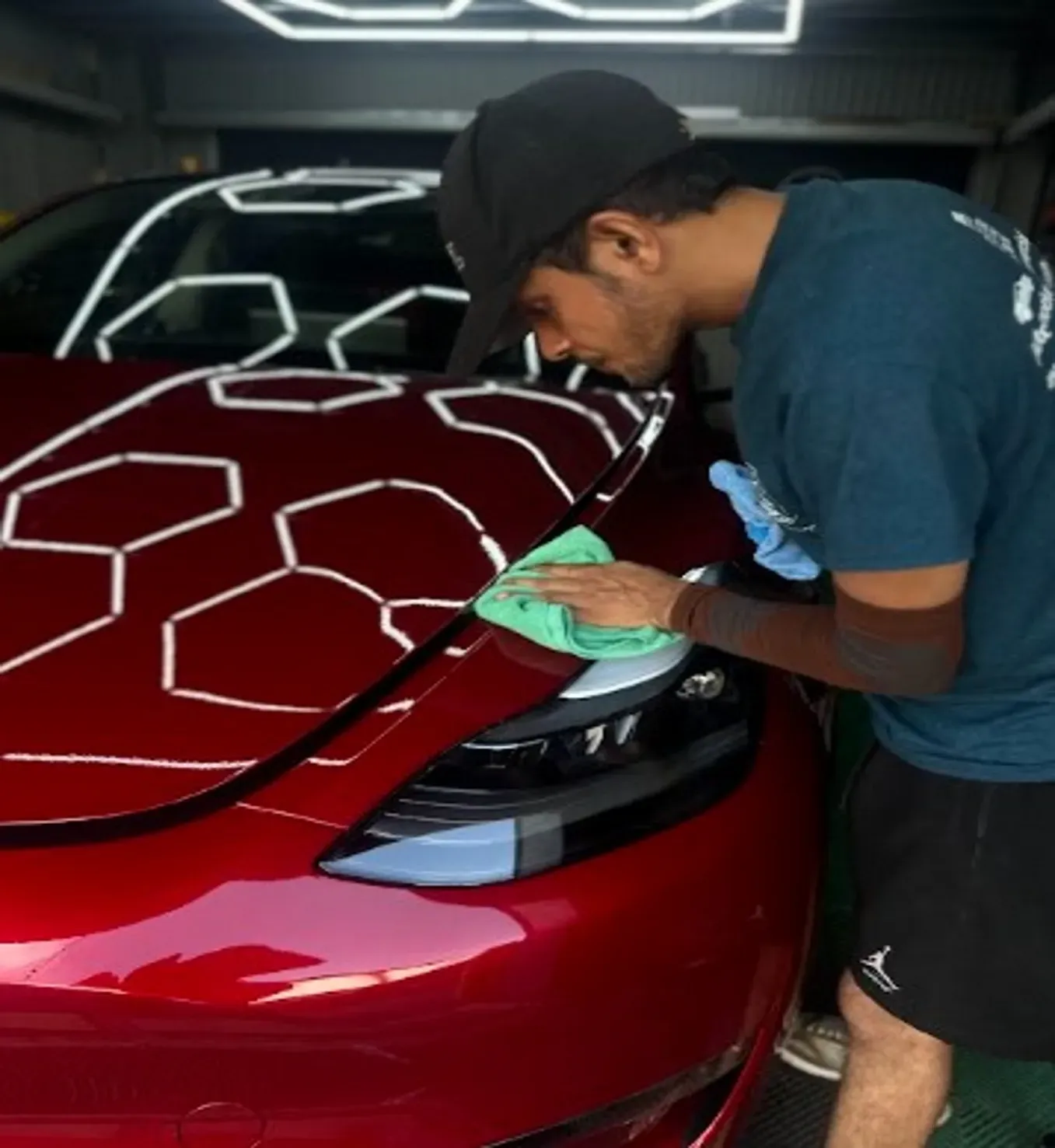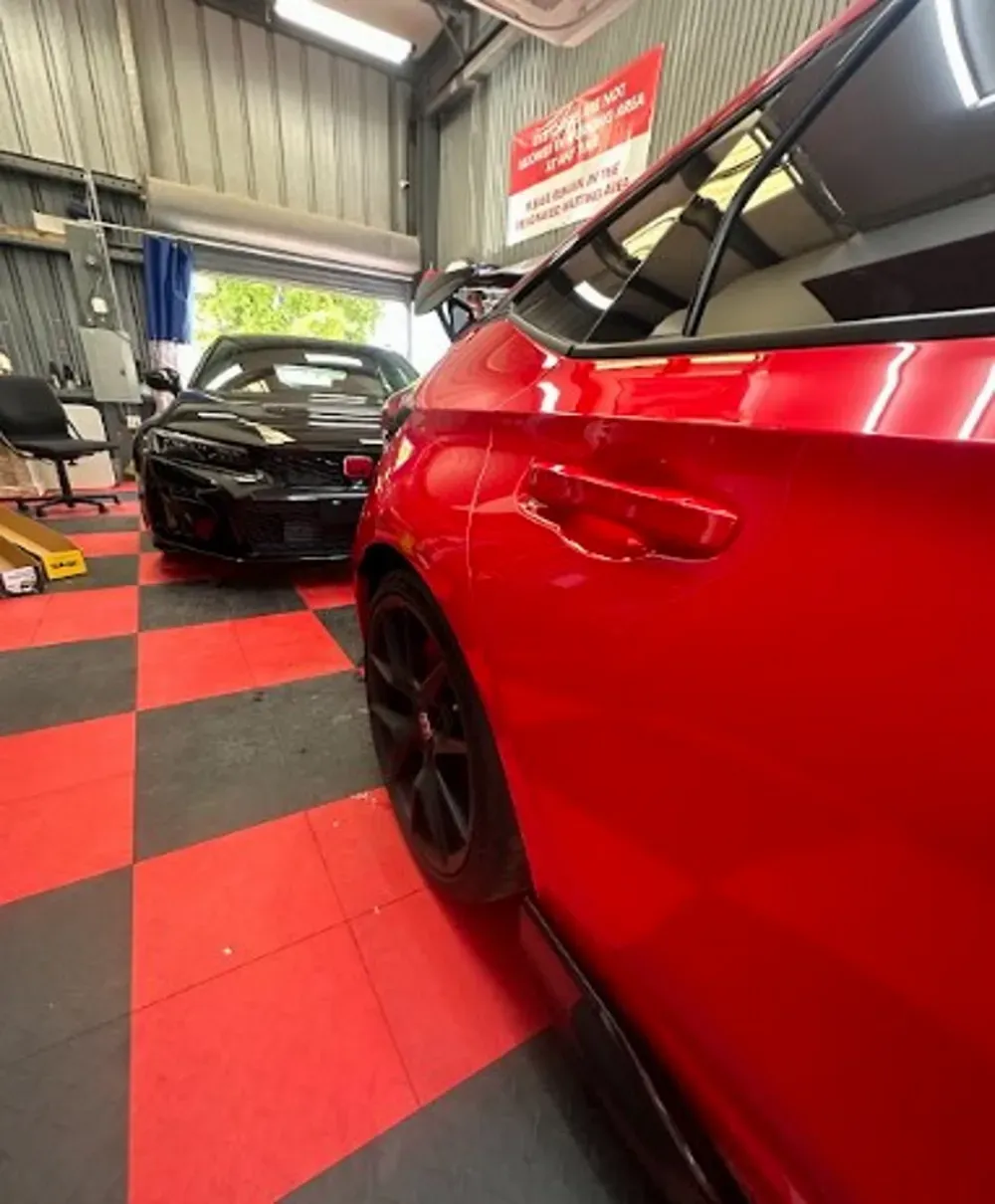When it comes to keeping your car in pristine condition, choosing the right
paint protection film (PPF) is crucial. You might be wondering which type of PPF is best for shielding your car from scratches, chips, and other environmental damage. The answer depends on understanding what each type offers and how it fits your vehicle's needs. We’ve gathered detailed information on PPFs to help make this decision easier for you.
From high-quality TPU films with self-healing properties to cost-effective TPH options and budget-friendly vinyl films, knowing the differences can make all the difference. Not only do these films protect your car’s paint from harmful UV rays and minor abrasions, but they also enhance its appearance and resale value. Let’s dive into the specifics to see which kind of film might suit your car best.
Types of Paint Protection Film
The world of paint protection film (PPF) is diverse, with each type designed to meet unique needs and budgets.
TPU (Thermoplastic Polyurethane) Film
Among different PPF options, TPU (thermoplastic polyurethane) stands out as a top contender. Renowned for their incredible durability and flexible nature, TPU films are a favorite among car enthusiasts. One fascinating aspect is their self-healing properties. Minor scratches can vanish simply by applying heat—be it from sunlight or a gentle touch like rubbing the surface. This means that not only can you enjoy a sleek look for longer, but you won't fret over those tiny imperfections after a weekend drive.
Brands like XPEL Ultimate exemplify the high-quality TPU films many consumers trust. These brands have developed a strong reputation thanks to their effective technology and customer satisfaction.
TPH (Thermoplastic Polyolefin) Films
Moving on, we have TPH (Thermoplastic Polyolefin) films. These films present a more budget-friendly alternative to TPU. TPH films provide decent protection against abrasions and harmful UV rays, making them a sensible option for daily drivers. However, they lack the self-healing capabilities that characterize TPU films, meaning they often require more frequent replacements due to wear and tear over time.
Vinyl Films
Vinyl films are the go-to choice for those who want an economical solution without opting for heavy-duty films yet still desire some level of protection. While they shield against minor scratches and debris effectively, they can experience discoloration or yellowing with prolonged exposure to sunlight. This means they’re best suited for short-term use or when primarily used to protect specific areas rather than an entire vehicle.
With an understanding of these different types of paint protection films—TPU, TPH, and Vinyl—you can now make informed decisions that fit your specific needs and objectives as you explore how these options enhance your vehicle's longevity and appearance.
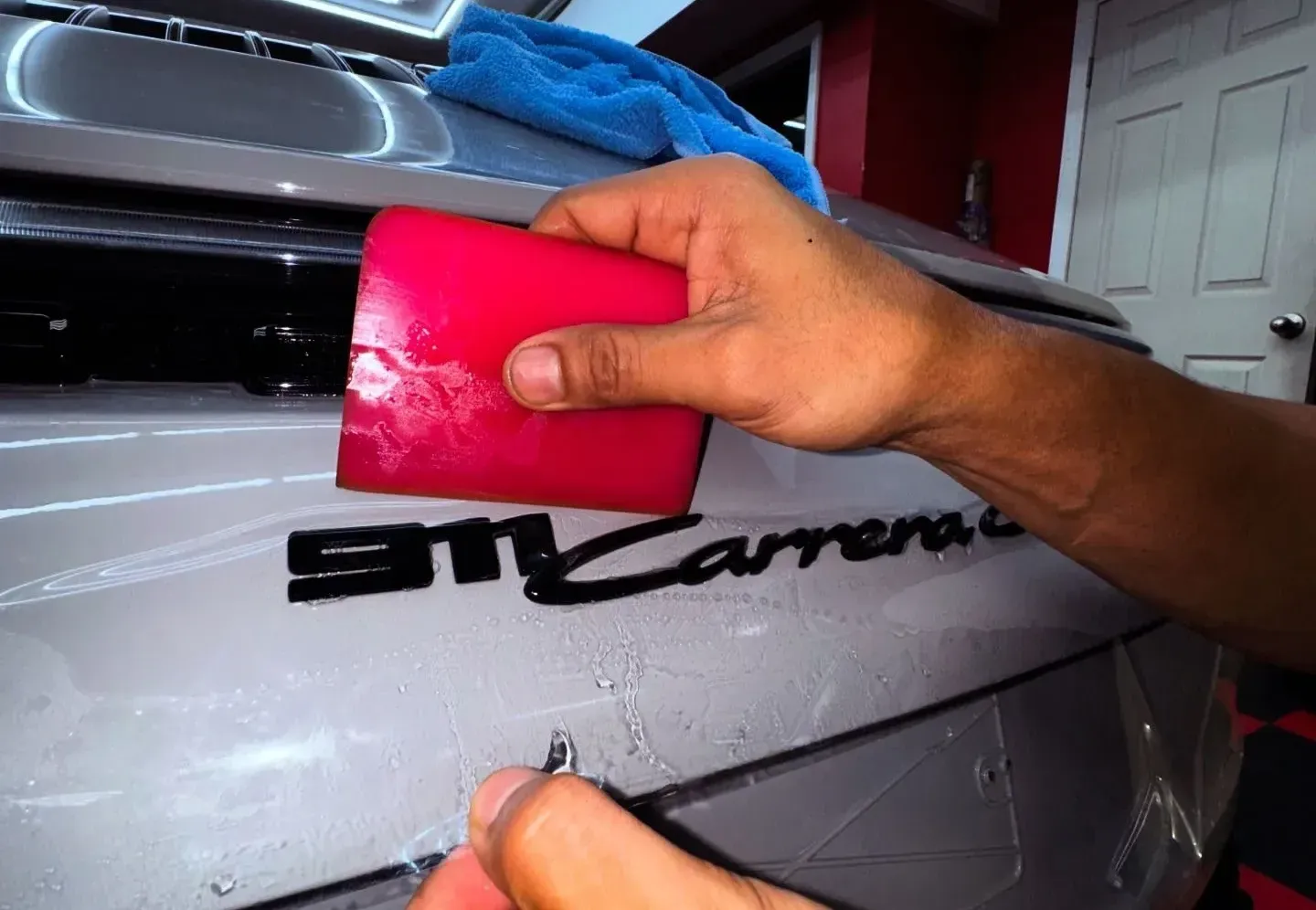
Benefits of Paint Protection Film
Paint Protection Film (PPF) is an invaluable way to shield the finish of your vehicle from daily hazards, providing an extra layer of defense from debris, environmental factors and minor impacts. Let's discuss why applying PPF is worth investing in.
1. UV and Oxidation Protection
The sun can be quite harsh on your car's paint, causing it to fade and oxidize with prolonged exposure. Paint Protection Film effectively shields your car’s finish from harmful ultraviolet rays, which helps maintain the vibrancy of the paint. This significantly extends the life of your vehicle's exterior while minimizing the need for frequent repainting or touch-ups. It’s worth noting that without this protective layer, you may find yourself dealing with unsightly peeling or dullness that detracts from your vehicle's appeal.
2. Ultimate Protection From Road Debris
Paint Protection Film can offer unparalleled protection for your vehicle against road debris such as stones, gravel, and salt that could potentially cause costly repairs in the form of paint chips and scratches. Installing PPF gives you peace of mind knowing your paintwork will remain undamaged by these hazards, allowing for hassle-free driving experiences without incurring costly repair bills later down the line.
3. Enhancing Vehicle Appearance
Over time, your car's exterior can become worn due to exposure to the elements. PPF offers UV-resistant properties that help shield its paint against sun damage, keeping its original hue and shine. Providing this layer of protection preserves glossy finishes to keep your car looking new for longer.
4. Self-Healing Properties
One of the hallmarks of modern paint protection film is its self-healing capabilities. Minor scratches and swirl marks that appear over time can automatically repair themselves as the film is exposed to heat--whether from direct sunlight or an application of warm water--allowing a flawless appearance without constant maintenance requirements. This feature helps maintain a pristine appearance.
5. Protect Against Environmental Contaminants
Bird droppings, tree sap, and bug splatter can all damage car paint over time if left on for too long, resulting in staining or etching that requires frequent cleaning efforts to remedy. PPF acts as a protective shield that stops these harmful contaminants from coming in direct contact with your surface, thus decreasing long-term damage risk and maintenance expenses.
6. Enhanced Resale Value
A well-maintained exterior significantly boosts your vehicle's resale value, with paint protection film helping maintain it to maintain a pristine state that protects it against paint chips or damage that could lower its market value. Potential buyers will recognize your care taken to preserve its original finish as an attractive feature when selling or trading in their vehicle, making it more attractive.
By investing in PPF, you're not only preserving the fresh aesthetic of your vehicle but also ensuring its longevity, making it a smart choice financially when considering long-term maintenance costs.
Cost Considerations for Paint Protection Film
When considering PPF, it's essential to remember that the price tag often reflects both the quality of the material and its installation. While upfront costs can be daunting, it’s important to look beyond just these numbers. The investment you make now can save you considerable amounts in maintenance and repairs down the road, warranting a deeper understanding of what you're paying for.
1. Initial Cost
The initial investment for PPF varies significantly based on car size, coverage area, and film type. High-quality thermoplastic polyurethane (TPU) films typically range from $500 to $1,500 for partial coverage on small to medium-sized vehicles. If you’re interested in a full car wrap, expect to spend between $2,000 and $5,000. These prices reflect the premium nature of the materials used, which are designed to resist scratches, stains, and UV damage.
However, while these figures may seem substantial at first glance, evaluating long-term savings can provide a clearer perspective on your investment.
2. Long-term Savings
Though the initial outlay may feel hefty, think about the potential savings over time. By choosing PPF, you're not just buying a product; you're making a proactive choice to protect your vehicle's paintwork. This protective layer helps prevent chips and scratches that might otherwise necessitate frequent repairs or even repainting. In many cases, incurring these additional costs can easily surpass the one-time expense of installing paint protection film.
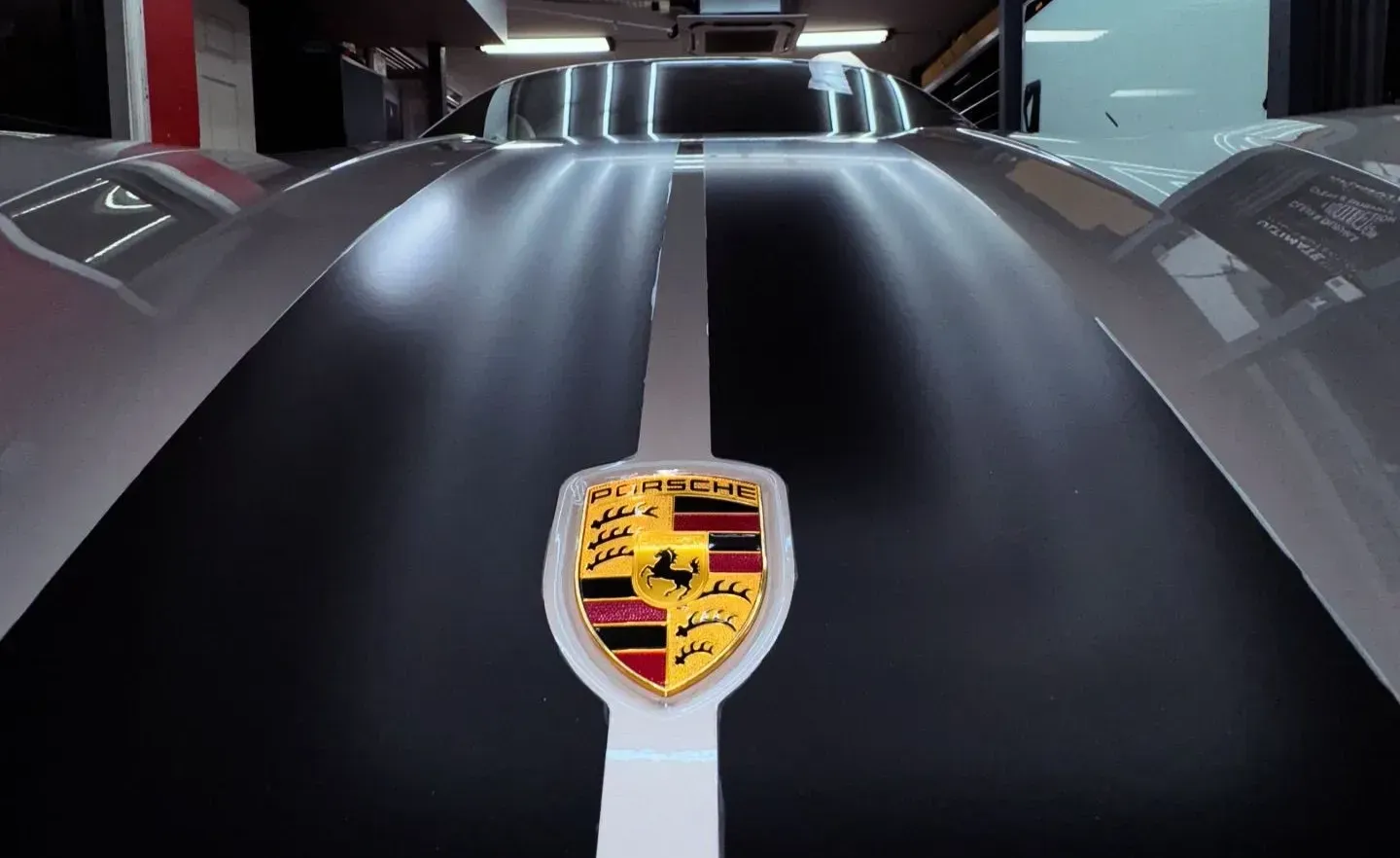
Professional vs DIY Installation
When it comes to installing paint protection film, the choices can seem overwhelming. On one hand, you have DIY kits that promise an easy experience, while on the other, there are certified professionals ready to take charge. However, the path you choose could significantly impact the final outcome of your car's protection.
DIY Installation
DIY installation kits are readily available online, typically ranging from $100 to $500. These kits come with everything you might need: the film itself, application tools, and sometimes even instructional videos.
But here's the kicker: the success of a DIY installation heavily relies on skill and precision. It's not just slapping a piece of plastic on your car—every inch must be carefully measured and applied without bubbles or creases.
Professional Installation
On the flip side, opting for professional installation comes with its own set of advantages. Our certified installers from Cayman Window Tinting bring years of expertise and a keen eye for detail. They know how to avoid common pitfalls, such as bubbling or misalignment, ensuring that each piece of film adheres correctly and functions as intended.
Beyond just aesthetics, professional installation provides peace of mind. It ensures the film fits perfectly along curves and seams, maximizing both protection and appearance. A poorly applied film can lead to premature degradation, which defeats its very purpose of safeguarding your vehicle.
Key Factors to Consider When Choosing Film
One of the first elements you should evaluate is the climate in which you live. If you reside in a sunny region, such as the Cayman Islands, it is essential to choose a film that offers superior UV protection. The sun's rays can deteriorate your vehicle’s paint over time, leading to discoloration and fading. Films with UV-blocking capabilities not only preserve your car's aesthetics but also help maintain its value in the long term.
Another critical factor to consider is your car usage. If you tend to drive frequently or navigate through harsh environments—such as mountainous terrains or aggressive traffic—you would benefit significantly from investing in a high-quality thermoplastic polyurethane (TPU) film. These films are specifically designed for durability and provide enhanced protection against abrasions, scratches, and road debris. Selecting a resilient film can keep your car looking pristine through any driving conditions.
Next comes the question of appearance preferences: do you favor a matte finish or a high-gloss look? Different films present various visual characteristics, allowing you to customize your vehicle's look further. For example, a matte finish might give your car an elegant, understated vibe, while a glossy film could add vibrancy and depth to its color. Aligning the appearance of the film with your aesthetic enhances your car’s style and brings satisfaction each time you drive.
Additionally, confirming that both your installers have relevant certifications and that the product comes with a solid warranty is crucial for peace of mind. A certified installer ensures proper application techniques—vital for achieving optimal results without risking damage to your vehicle. At Cayman Window Tinting, we emphasize quality assurance by offering warranties alongside our products. This means you're investing in both protection and durability, allowing you to enjoy your vehicle without constant worry about its exterior condition.
Considering these pivotal factors will guide you toward selecting a paint protection film that accommodates your unique needs while ensuring durable benefits down the line. By prioritizing climate considerations, car usage patterns, aesthetic preferences, and certifications with warranties, you place yourself on a path toward protecting your vehicle efficiently and effectively.
In summary, choosing the right paint protection film involves evaluating climate, usage, appearance preference, and installer certification for optimal results. To learn more about paint protection options tailored specifically for your needs, feel free to contact us at Cayman Window Tinting or call us at (345) 939-7343 for personalized assistance.


